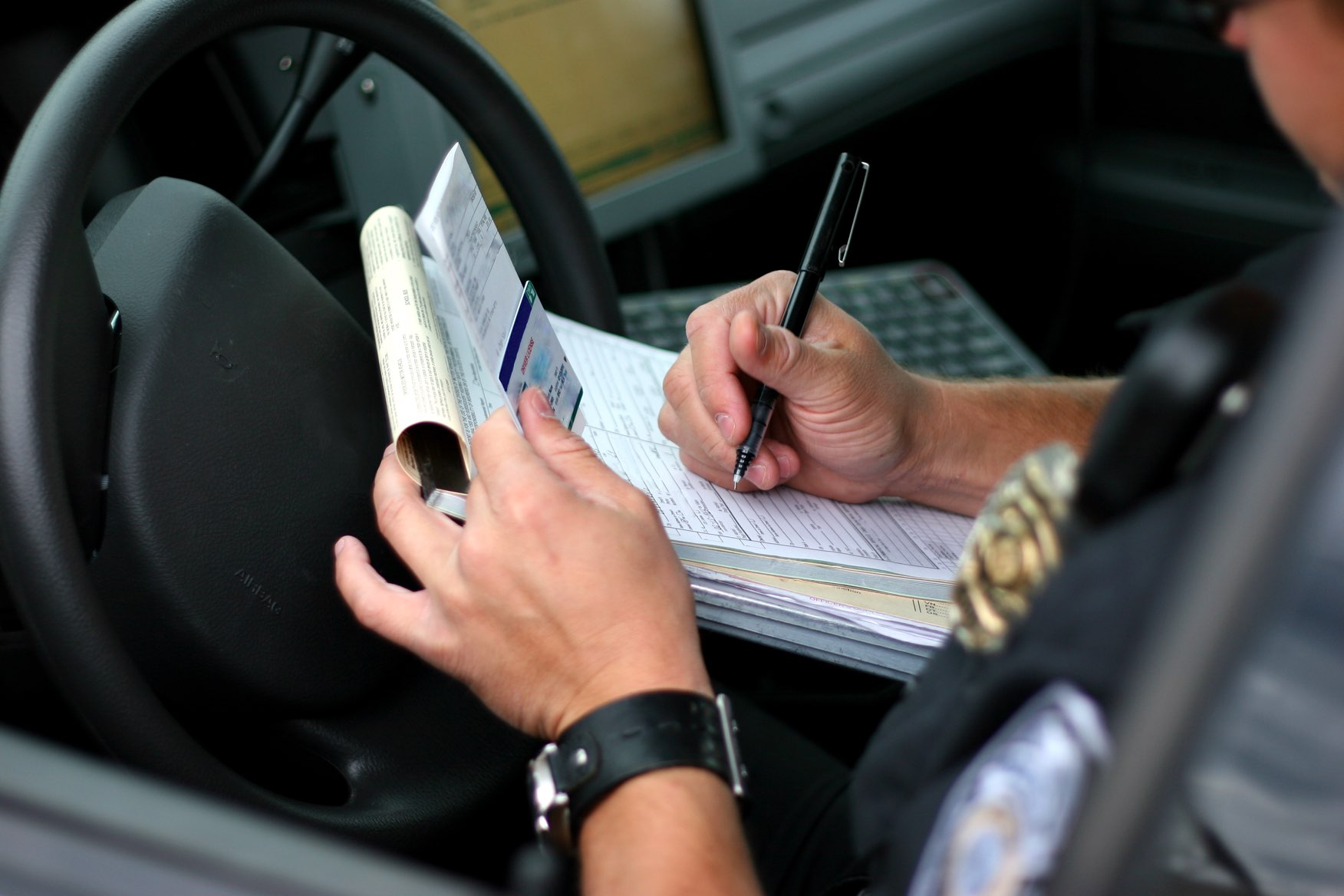Houston, TX, is the fourth largest city in the nation. This means more people – and more drivers – than anywhere else in the United States except New York City, Chicago and Los Angeles. With more people on the road, that means more car accidents and more auto injury cases.
So what are the odds that you might get into a car accident while driving in Houston, TX?
According to TxDOT (the Texas Department of Transportation), Houston had more than 64,000 traffic accidents in the last calendar year for which data exists.
That is a lot of car accidents. With so many drivers all navigating the same congested city streets and through-ways, you take your fate and your finances into your hands every single time you get behind the wheel.
This also means it is critical to understand how getting a traffic ticket impacts an auto injury case in Houston, TX. In this article, we walk you through the steps so you know what to expect and how to be your own best advocate after a car accident.
Steps to Take Right After the Accident Occurs
The first thing you need to learn is exactly what steps to take right after you are in an accident. These steps remain the same whether you were operating a motorcycle, car, truck or some other type of vehicle.
1. Be sure you and any passengers are safe to move about.
It is a fact that you may not always know you have been injured from a car crash right away. Symptoms such as neck pain from whiplash and back pain can take up to 72 hours or even longer to start to show up.
But what you do need to do before moving about is to verify that it is safe to do so. This is especially vital if the accident occurred on a busy street or through-way. Always use extreme caution before exiting your vehicle to complete the next steps.
2. Call for emergency medical attention right away for anyone who needs it.
There are different viewpoints on whether to ride in an ambulance to the hospital. But if someone is injured and basic first aid is not sufficient, you don’t want to debate this on the spot.
Just call 911 and ask for emergency medical assistance for anyone who needs it. This fast action might save a life.
3. Contact the local police and ask for an officer to create an accident report.
If a police officer has not already arrived on the scene, you will want to call and request an accident report. This can be a valuable document to have if you need to work with an accident attorney to seek damages for medical issues or property losses.
During some times of day in Houston, TX, such as during the morning and evening rush hour, it can take some time for an officer to arrive. So you want to do this right after you have gotten anyone who needs it medical care. You can complete the next steps while you wait for the officer to arrive.
Whether you call the police or an officer arrives on the scene without your call, you may get a traffic ticket. This may occur whether or not the accident was your fault (either partially or fully).
In the next section here, we will talk about the impact getting a traffic ticket may have on your auto injury case.
4. Document everything you remember and take pictures and video.
Unfortunately, it is quite common for people to say they are fine after an accident or that their vehicle is not damaged but then change their story later.
To protect yourself, be sure to take photographs of all vehicles from every angle. Take videos of the intersection nearest where the accident occurred and of the roadway.
Record notes to yourself about the time of day, weather, street signs, traffic volume, road conditions and anything else you see. Then record everything you remember about how the accident happened. Do this while your memory is very fresh.
5. Exchange insurance and contact information with the other driver(s).
Memorize this one fact now: NEVER talk to the other driver’s insurance claims agent, even if they ask you to! This can be used against you later if your claim has to go to court or arbitration.
Be very calm and polite when you approach the other driver(s) to exchange insurance information and contact information. Get and give the information you need and then go back to your vehicle to wait for the police officers.
6. Contact your auto insurer to start an accident claim.
Once you have the other driver’s insurance information, you can call your own insurer to open an accident report. This will allow you to start using your insurance benefits right away if you need a rental vehicle or medical attention.
7. Get the responding officer’s contact information and badge I.D. number.
When the officer arrives to complete the accident report, answer all questions honestly but do not volunteer extra information. Be sure to get the responding officer’s contact information and badge I.D. number.
This information is what you will use to look up and download your accident report. It may take a day or two before the completed report is filed and ready for download. Your car accident attorney can help you locate and download the document to make your claim.
8. Go home and keep notes about how you feel and other things you remember.
Being involved in an auto accident is always going to be very stressful. This is normal and natural. You may not remember everything clearly at first. So keep notes or record notes to yourself about other things you remember.
Pay attention to how you feel that evening and the next morning. If you start to feel neck pain, back pain or other pain write down what it feels like and how severe the pain is. Don’t wait to seek medical care – go ahead and use your insurance benefit immediately.
If you do these steps in order right after you are involved in an auto accident, it will make the process of completing and filing your claim much easier.
If you need to hire an auto accident attorney to receive compensation for medical or property damage, having all of this information can expedite your case.
Now let’s take a close look at how getting a traffic ticket may impact an auto injury case.
Texas Is a Comparative Fault State for Auto Injury Accidents
Texas isn’t the strictest state in the nation for processing auto insurance claims. But it is far from the most lenient state, either.
In fact, Texas falls somewhere in between with its “comparative fault” policy.
What is comparative fault, you might be wondering? Comparative fault is a policy whereby the driver who is deemed to be at fault (50 percent or greater) for causing the accident must pay for all the damages – medical and property – caused by the accident.
As you are probably already imagining, this issue of assigning fault can get challenging quickly. For example, what if you are 25 percent at fault or 49 percent at fault?
This is often why drivers choose to retain the services of an auto accident attorney to advocate for getting the compensation they deserve. Texas’s fault policy makes it really complicated and difficult to try to get through this process alone, especially if you also have a traffic ticket.
In Texas, getting a traffic ticket doesn’t automatically mean you were 50 percent or greater at fault. But you can bet the other driver’s insurance claims agent will try to use your traffic ticket to show you were at fault so they don’t have to pay out any claims.
As long as you are deemed to be less than 50 percent at fault for causing the accident, you are still able to claim damages. The amount of damages you can collect will simply be reduced by whatever percentage of fault you bear.
How Auto Insurance Injury Claims Work in the State of Texas
Many times drivers start trying to go through the process of handling an auto injury traffic ticket by themselves. But quickly, they realize the process is far more challenging than they had anticipated.
Any auto accident where an injury occurred is going to be complicated. But in Texas, because of the comparative fault laws, it is twice as complicated. This is because each auto insurance company’s legal teams are trying to prove that their driver is not at fault so they don’t have to pay out any claims.
As a driver, trying to go head to head with a big team of well-paid corporate lawyers to argue that you deserve compensation and that you are less than 50 percent at fault is not easy!
You may find yourself facing delay after delay, redundant requests for information and other processes that don’t seem to make any sense. Sometimes they really don’t make any sense because they are just stall tactics to try to force you to accept a verdict you don’t want to accept.
When this happens, it can really start to impact the rest of your life, eat up your time, interfere with your work and delay you getting reimbursement for your medical needs.
Does Getting a Traffic Ticket Mean You Have No Case?
This is one of the most common questions we hear at our firm. Here is what you need to know about how your traffic ticket may impact your potential to make an auto injury claim.
Even if a Houston police officer issued you a ticket stating you were at fault, it is important to know that the police do not get the final say on accident fault in Texas.
However, you may have to file a case to contest the police officer’s findings, because once you file a case, the judge and jury will have the final say over who was at fault for causing the accident and what percentage of fault each party bears.
How you handle your traffic ticket can also impact how your case proceeds or even whether you have a case.
If you plead not guilty.
If you plead not guilty to the findings in your traffic ticket, it will likely form the basis of any auto injury case you file and will be admitted as evidence in court. This means the jury will be able to hear about the traffic ticket and consider it when making their decision.
If you plead guilty.
In the same way, if you plead guilty to the judgment in your traffic ticket, the judge will likely hold it as admissible in court as part of the evidence for making your case.
If you plead no contest.
However, if you plead no contest to the traffic ticket you receive and pay whatever penalties or fines are assessed, the judge may not permit the jury to hear about your traffic ticket.
If your ticket gets dismissed.
In the case that your traffic ticket gets dismissed altogether, it may or may not be deemed as relevant to any auto injury case you file. Here, the judge may not allow it to be entered into evidence in your case.
How a Traffic Ticket Impacts Your Auto Injury Claim
As you can see, auto injury cases where traffic tickets are involved can get complicated quickly in Texas!
Texas traffic law is complex and can be difficult to navigate and interpret even for professionals who work with it every day.
If you have gotten a traffic ticket as a result of being involved in an injury auto accident, it is smart to hire an experienced car accident lawyer to help you navigate the process and get the settlement you deserve. Contact PM Law Firm for help.

